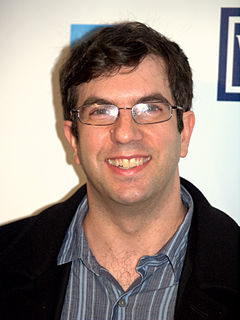A Quote by Steven Pinker
20th-century totalitarian movements were no more defined by a rejection of Judeo-Christianity than they were defined by a rejection of astrology, alchemy, Confucianism, Scientology, or any of hundreds of other belief systems.
Related Quotes
The 20th century is a period defined by cultural and artistic movements. However, the 21st century creative-scape that we occupy now doesn't really have movements in the same way. Instead it's made up of diverse individuals working across various platforms simultaneously; art, architecture, film, music and literature.
More girls were killed in the last 50 years, precisely because they were girls, than men killed in all the wars in the 20th century. More girls are killed in this routine gendercide in any one decade than people were slaughtered in all the genocides of the 20th century. The equivalent of 5 jumbo jets worth of women die in labor each day... life time risk of maternal death is 1,000x higher in a poor country than in the west. That should be an international scandal.
I was really interested in 20th century communalism and alternative communities, the boom of communes in the 60s and 70s. That led me back to the 19th century. I was shocked to find what I would describe as far more utopian ideas in the 19th century than in the 20th century. Not only were the ideas so extreme, but surprising people were adopting them.
Impartial observers from other planets would consider ours an utterly bizarre enclave if it were populated by birds, defined as flying animals, that nevertheless rarely or never actually flew. They would also be perplexed if they encountered in our seas, lakes, rivers, and ponds, creatures defined as swimmers that never did any swimming. But they would be even more surprised to encounter a species defined as a thinking animal if, in fact, the creature very rarely indulged in actual thinking.
It is not rejection itself that people fear, it is the possible consequences of rejection. Preparing to accept those consequences and viewing rejection as a learning experience that will bring you closer to success, will not only help you to conquer the fear of rejection, but help you to appreciate rejection itself.
I wanted to do the comic strip. I tried to get it syndicated, and I sent some examples to a syndication company, and they sent me a rejection letter! I wasn't smart enough at the time to realize you shouldn't let rejection letters stop you. I thought that rejection letter meant I was not allowed to be a cartoonist in this world, so I put the rejection letter down and said, well, I'll be a stand-up comedian.
In the 19th century, when Muslims were looking at Europe as an example, they were independent; they were more self-confident. In the early 20th century, with the fall of the Ottoman Empire, the whole Middle East was colonized. And when you have colonization, what do you have? You have anti-colonization.
Written in 1895, Alfred Nobel's will endowed prizes for scientific research in chemistry, physics, and medicine. At that time, these fields were narrowly defined, and researchers were often classically trained in only one discipline. In the late 19th century, knowledge of science was not a requisite for success in other walks of life.





































